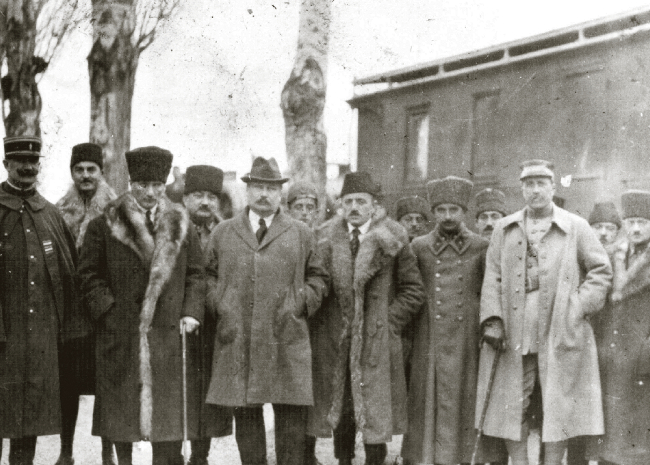 The French choose peace over war
The French choose peace over war
As her national interests concerning the Eastern question did not coincide with those of the U.K., Greece, and Italy, France had signed a temporary ceasefire with the Grand National Assembly prior to the Treaty of Sèvres, thereby recognizing the National Government as a legitimate party.
While accepting the National Pact and the existence of the new Turkish state in principle, France still wanted to see the turn of events before signing a treaty directly with the Assembly Government. The signing of the Treaty of Moscow between Soviet Russia and the Ankara Government on March 16, 1921 and the absolute victory of the Turkish army at the Battle of Sakarya on September 13, 1921, eradicated any doubts of the French government, which hoped to end the bloody yet futile war it was engaged in against Turkey on the Southern Front.
When the meetings of former minister Henry Franklin-Bouillon, who was sent to Ankara on an unofficial mission by the French government, yielded positive results, France disengaged herself from the Allied States and signed the Ankara Agreement with the Grand National Assembly Government on October 20, 1921. The agreement not only officially ended the war on the Southern Front, but also determined the south border (with the exception of iskenderun-Hatay) of the country.